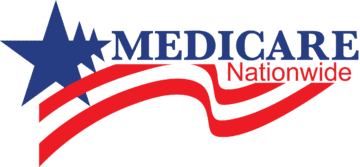What Does Medicare Cover?
Medicare coverage depends on which part you choose. These parts differ in cost and coverage to better cater to the needs of those 65 and older. These parts are split into A, B, C and D, and all cover different things. There are also supplemental plans, also known as Medigap, which we will delve into later.
Following are the four parts of Medicare:
- Medicare Part A. This is part of Original Medicare and covers the baseline medical expenses that most seniors would require. The coverage is pretty basic, but is a good deal if you do not require frequent visits to the doctor for chronic health issues. Part A covers inpatient care in a hospital, skilled nursing facility care, nursing home care, hospice care and home health. This can depend on where you are located, but generally Part A covers these.
- Medicare Part B. Part B covers a little more than Part A because it also includes preventive services in addition normal medical services: clinical research, ambulance services, durable medical equipment, mental health services and outpatient prescription drugs. These services will also be available at no cost if Part B recipients get care from a provider that accepts assignment.
- Medicare Part C (Advantage). Known as Medicare Advantage, Medicare Part C is a mixture of Parts A and B with a few added benefits, making this part the more premium option. Depending on where you live, you will get coverage for not only what A and B cover, but also for receive dental, vision and hearing along with fitness memberships. If you are looking for maximum coverage, Part C is a great option.
- Medicare Part D. This is different from the other Medicare plans because it only covers prescription drugs. Medicare Part D is also only available to those who are enrolled in Part A or Part B. There is a range of medication covered under Part D which include anticancer, antidepressants, anticonvulsive, immunosuppressant, HIV/AIDS and antipsychotic medications. Whether they are name brand or generic depends on what Part D plan you choose.
This appointment is meant to alleviate any concerns and there is no-cost or obligation to make a change.
What Doesn’t Medicare Cover?
There is a lot Medicare does not cover that you may need. If it is not listed above, you will likely not find coverage within Medicare. That is where supplements come in.
Supplemental plans, otherwise known as Medigap, are optional pieces of Medicare that can cover many of the things that Medicare does not. This is private insurance and will cost a little extra, but the benefits may be worth it. These plans are A, B, C, D, F, G, K, L, M and N, and all provide nice added benefits to Medicare Parts A and B. While the benefits can vary among supplemental plans, all plans will typically cover Part A hospital coinsurance, an extra 365 days of benefits after Medicare has been exhausted, some to all of Part B coinsurance, Part A hospice coinsurance, and three pints of blood.
Are All Parts of Medicare Mandatory?
Not all parts of Medicare are mandatory. While some say they are optional, they could charge fees for not being enrolled.
When you enroll in Medicare, you are automatically enrolled in Part A. For most people, they have been paying their premium their whole lives and won’t need to pay anything while they’re enrolled. If you do not qualify for this, you will pay an income-based premium which is still a small fee.
Medicare Part B is not automatic like Part A, and may be required. In Medicare, you can skip out on required parts by having “creditable coverage,” which is usually from an employer. If you do not have creditable coverage, you are required to get Part B, which has a monthly premium. If you do not enroll in Part B and do not have creditable coverage, you will have to pay penalties once you enroll.
Medicare Part C is not required if you have Part A or Part B. Part C is a private, premium Medicare coverage plan that covers what Parts A and B cover along with some of Part D. This option is great for those looking for more comprehensive coverage and are willing to pay a little more. There are some great benefits under Part C, making it worth looking into.
Finally, Medicare Part D, or Medicare drug coverage, is another private Medicare option that covers prescription drugs at varying cost. You have probably heard that this plan is not required, and in some cases isn’t. But for the most part, you will need to enroll in Part D within your enrollment period or be hit with fines. Just like Part B, if you have creditable coverage, you will not need to enroll in Part D.
How Do I get Started with Medicare?
Getting started with Medicare depends on a few factors. Depending on what benefits you receive from the government, you may not need to enroll at all. Many people are already entitled to Medicare benefits when they turn 65.
If you are already receiving benefits from Social Security, you do not need to enroll. This applies on the first day of your birth month in the year that you turn 65. If your birthday was July 23rd, you would receive benefits starting on the 1st of July of the year you turn 65. You will automatically be enrolled in Medicare Part A and B, with your Medicare card coming in the mail three months before you are eligible.
If that does not apply to you, you need to apply for Medicare or retirement benefits. This can be done by going online to the Medicare website and inquiring about your situation and possible plans that could benefit you.
Finally, some people under 65 can receive Medicare benefits under certain circumstances. If you are disabled or have Lou Gehrig’s disease and receive disability benefits through Social Security, you will be automatically enrolled in Parts A and B on the 25th of the month you receive disability benefit entitlement. If this applies to you, there is nothing you need to do in order to enroll in Medicare.
How Much Do I Need to Make to Qualify for Medicare?
You will always qualify for Medicare no matter how much you earn or have earned. As long as you are 65 or older, you can qualify for Medicare benefits. How much you pay can change based upon your income, though.
If you receive Social Security benefits, Part A is available at no cost. If you do not receive benefits, you can still receive Part A without a premium in certain circumstances.
Part B has a premium that is dependent on income. These are broken down into income brackets, and range from above $500,000 for a single payer and below $87,000. If you make under $87,000, you could be eligible for assistance, and would not need to pay for premiums.
Part D works similarly. If you make less than $87,000, Part D is offered at no extra cost and you may also be eligible for assistance.
These prices can also differ for married couples.
This appointment is meant to alleviate any concerns and there is no-cost or obligation to make a change.
How Do I Make Medicare decisions?
The internet has many resources dedicated to Medicare. As you’ve seen on our site, we’ve created company reviews, and guides for the various parts of Medicare along with all the supplemental coverage available.
The amount of information is overwhelming.
Sometimes, you just need to talk out the program and options with another person. This is exactly why Medicare Nationwide exists. We specialize in Medicare products, and have spent years understanding the laws, regulations and options available to people 65 and older. We have contracted with multiple companies throughout the United States to give people more options so they can find the best coverage for their situation.
We’d love to talk with you. If you are new to Medicare or just need a second look at your coverages, we can walk you through all of your options to understand what is available.
Don’t worry. We’ve been in your shoes before. We know exactly what it feels like to be overwhelmed and confused. The first time you jump on Medicare.gov you don’t even know where to start.
Contact us and start a conversation. If you are early in your journey, you won’t need to make decisions immediately, but we want you armed with enough information to make the best decision for you.
Prefer to chat by phone? Give us a call at 1-888-559-0103.

